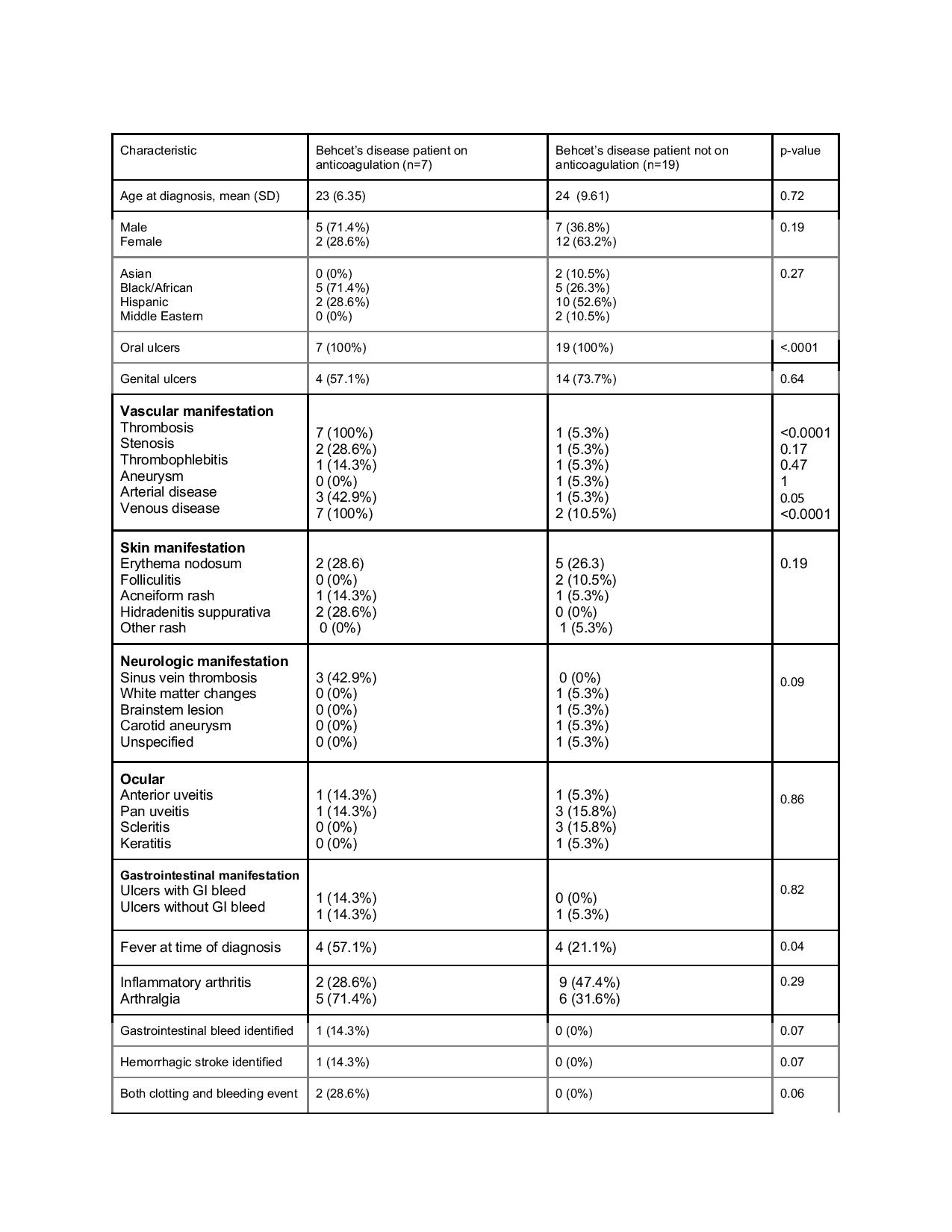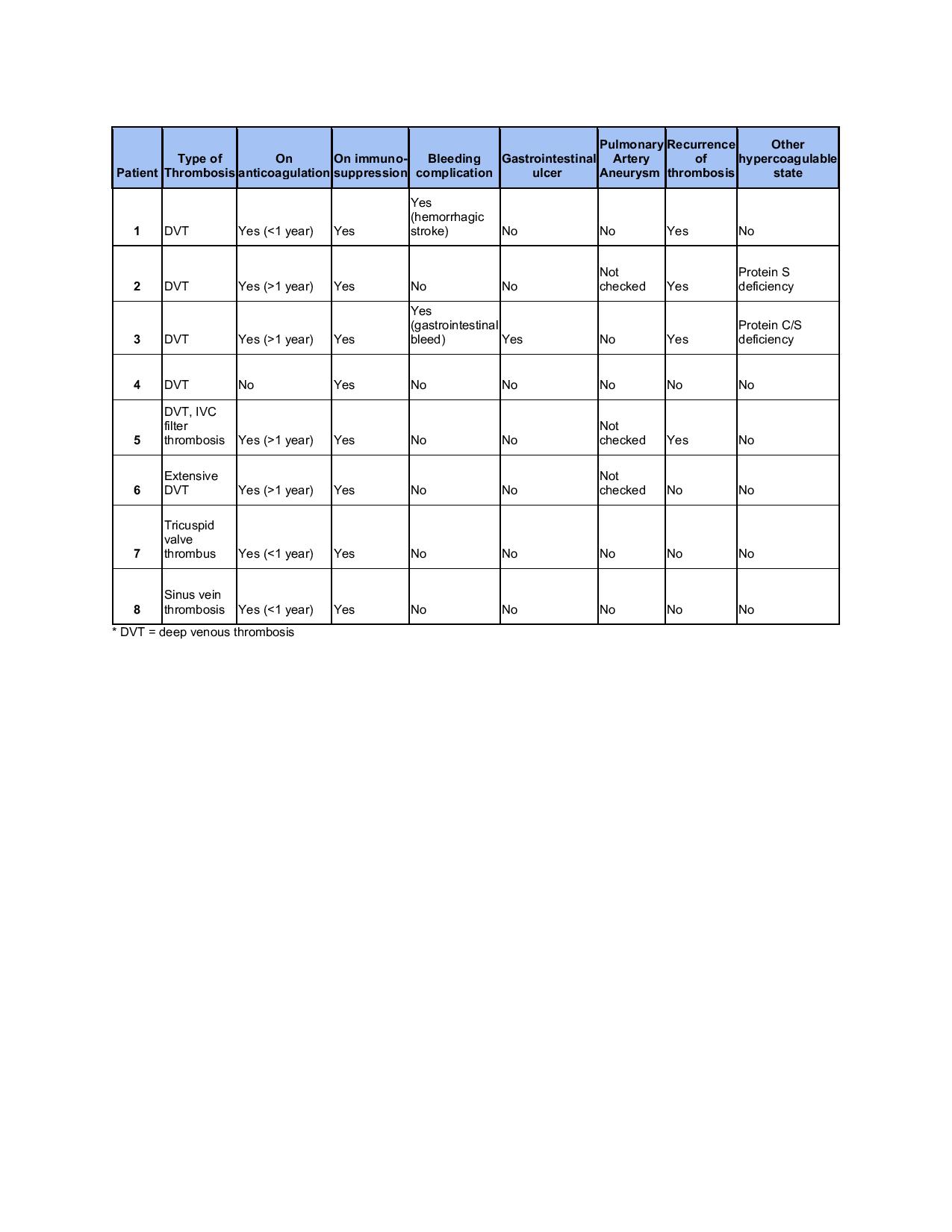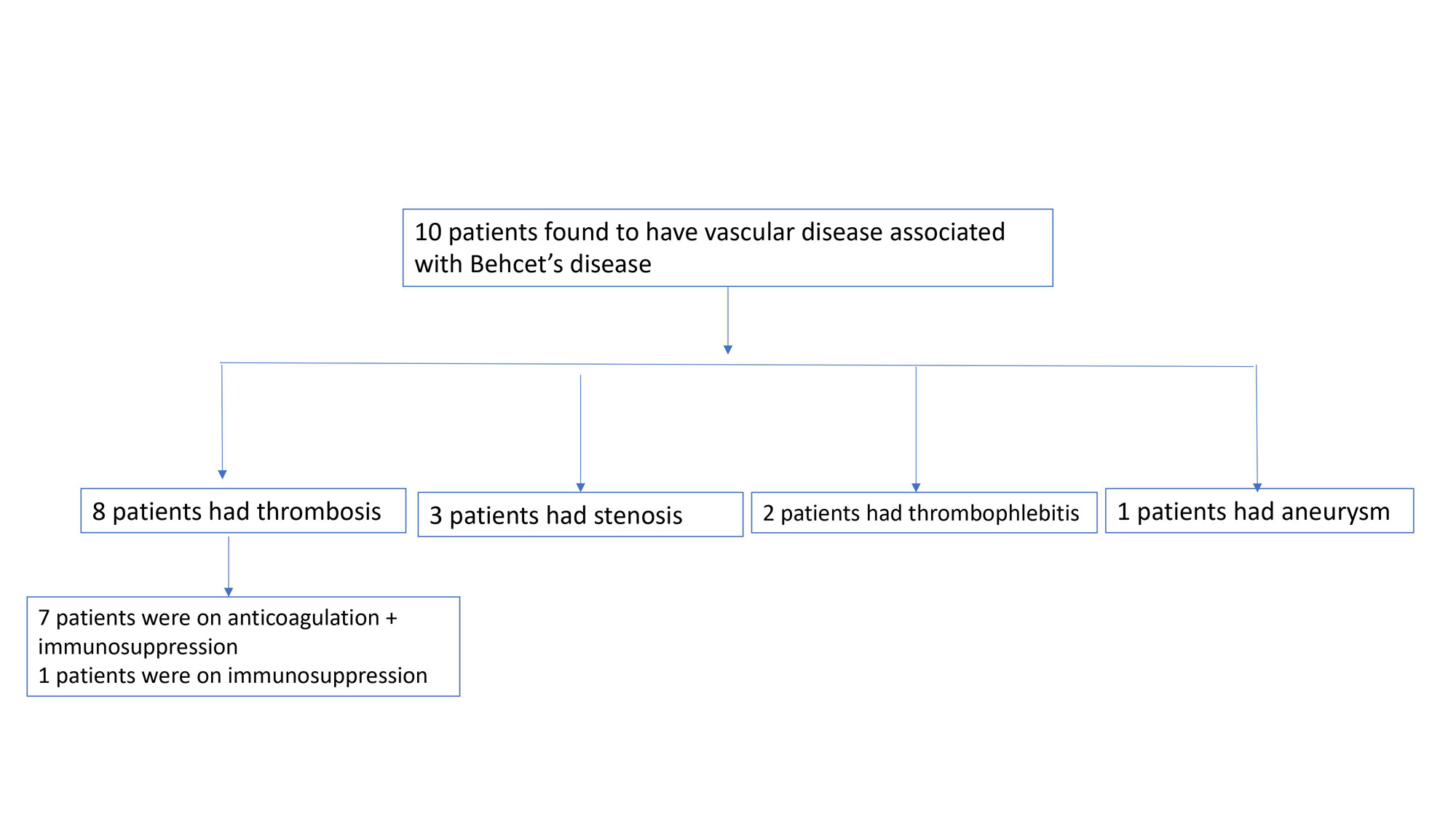Session Information
Date: Monday, November 13, 2023
Title: (1554–1578) Vasculitis – Non-ANCA-Associated & Related Disorders Poster II
Session Type: Poster Session B
Session Time: 9:00AM-11:00AM
Background/Purpose: Behcet’s disease (BD) is a vasculitis with both thrombotic and bleeding complications which can make management challenging. Thrombosis is due to direct vascular inflammation, and thus guidelines emphasize immunosuppression (IS) as the mainstay of treatment [1] rather than anticoagulation (AC). BD is most prevalent in the Mediterranean region and East Asia [2]. Countries may vary in management of BD coagulopathy, possibly due to differences in prevalence of BD [1]. Our study objective is to explore management of BD coagulopathy in a racially diverse population, and we compared clinical features of BD patients on anticoagulation to those not on anticoagulation.
Methods: After institutional review board (IRB) approval, we queried Montefiore Medical Center electronic medical record and the clinical looking glass databases to identify patients with a diagnosis of BD aged 16 years and older who met International Criteria for Behcet’s Disease (ICBD). We performed a retrospective chart review and analyzed the results using two sample t-tests for continuous variables and Fisher’s exact tests for categorical variables.
Results: We identified 26 patients with BD. Among them, 46% were Hispanic, 39% were Black, 8% were Asian, and 8% were Middle Eastern. A total of 10 patients had vascular manifestations of BD [Figure 1], out of which 8 had thrombosis. Of those patients with thrombosis, 7 were both on IS and AC, and 1 was on IS alone. Of the 7 patients who were on AC, 3 were on AC for less than 1 year, 4 were on AC for more than 1 year. Two patients suffered from both bleeding and thrombotic complications of BD. No patients were identified to have pulmonary artery aneurysm. Out of the 8 patients with thrombosis, 2 patients were noted to have hypercoagulable diseases– one had protein C and protein S deficiency, and another had protein S deficiency.
Conclusion: We compared the clinical features of BD patients on anticoagulation to those not on anticoagulation, and we found that unless there was a thrombotic event, patients were not initiated on AC [p< 0.0001]. Among our patients, 31% experienced thrombosis, and 25% of these patients experienced a bleeding event related to BD. The majority of our patients with thrombosis were treated with both IS and AC, though one patient with thrombosis was given IS alone. We found decisions on AC use considered presence of other hypercoagulable disorders, severity and location of clot, clot recurrence, pulmonary artery aneurysm screening, and history of major bleed. Our study suggests that while the mainstay of treatment for BD coagulopathy remains IS, each individual’s clotting and bleeding risk should be evaluated when considering AC. If patients have recurrent clotting despite IS, they should also be screened for hypercoagulable disorders and pulmonary artery aneurysms if AC is considered to avoid untoward outcomes.
To cite this abstract in AMA style:
Mian S, Meisel T, Md H, Xie X, Tanner T, Kumthekar A, Ayesha B. Behcet’s Disease Coagulopathy in a Racially Diverse Patient Population [abstract]. Arthritis Rheumatol. 2023; 75 (suppl 9). https://acrabstracts.org/abstract/behcets-disease-coagulopathy-in-a-racially-diverse-patient-population/. Accessed .« Back to ACR Convergence 2023
ACR Meeting Abstracts - https://acrabstracts.org/abstract/behcets-disease-coagulopathy-in-a-racially-diverse-patient-population/



